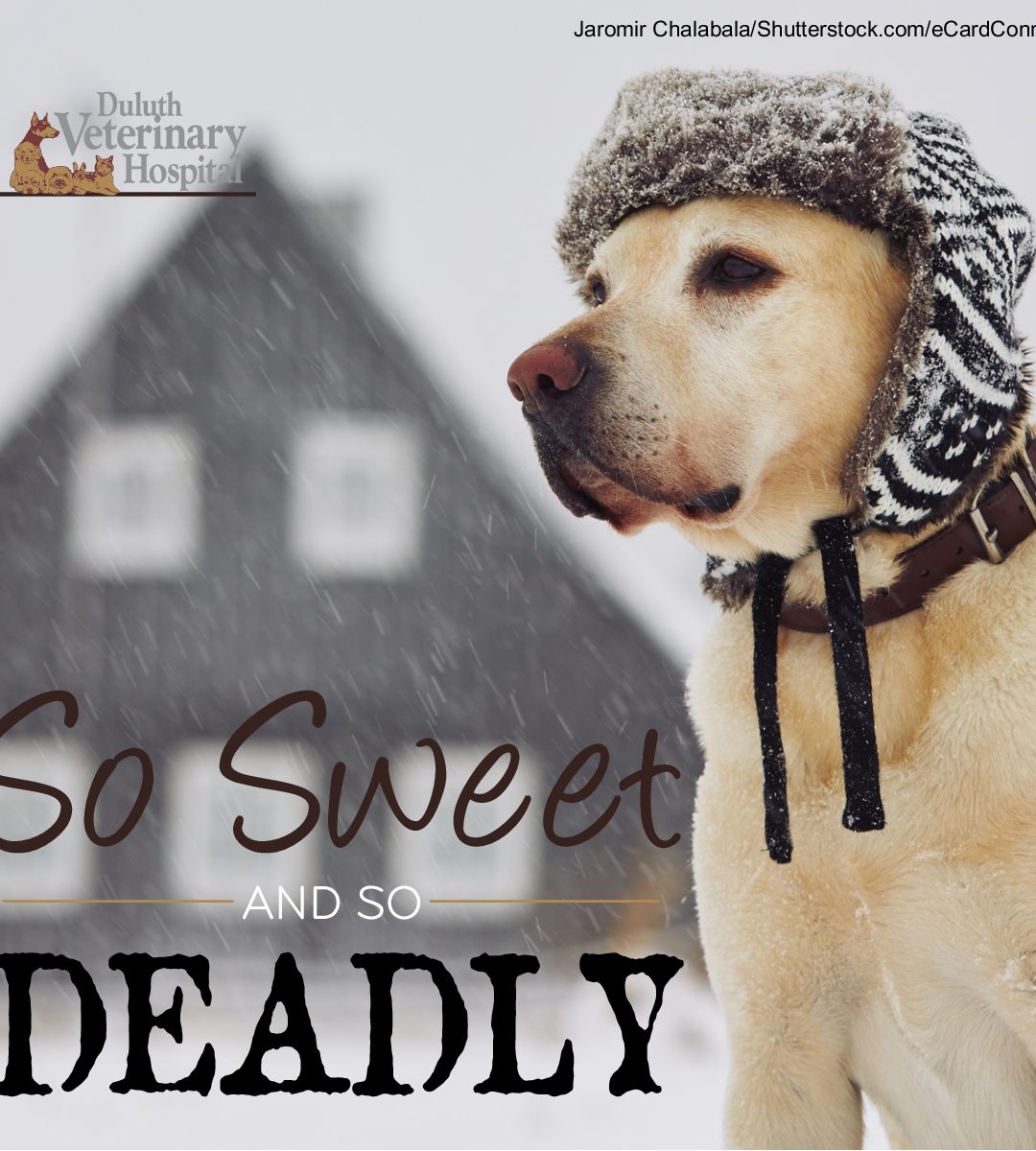There are a few reasons to be extra cautious with pets during winter: slick ice, bitter cold temperatures and festive holiday décor are just a few. But the most dangerous wintertime item for your pet is antifreeze. Extremely toxic in very small doses, antifreeze can be deadly if ingested. Simply walking through a puddle and later licking paws can be enough for a pet to consume a toxic amount.Antifreeze dangers
Antifreeze is used in automobile cooling systems, of course, but can also be used in home plumbing systems during winter to maintain pipe temperature and is also used in snow globes and some cosmetics. A main ingredient in antifreeze is ethylene glycol, and its metabolic properties break down to cause severe damage to kidneys. Most antifreeze has a sweet smell and taste, which can encourage a curious pet to taste it.
To make sure your pet is not exposed to antifreeze, keep any extra in sealed containers out of reach. Check your garage floor or driveway often for spills of the green-yellow liquid. Cat litter will absorb a spill. It’s good to wash paws with soap and water after a winter walk, and especially so when your pet may have walked through a puddle with antifreeze. Look for pet-safe antifreeze in stores. While this product is not 100-percent nontoxic, it is less poisonous to pets.
Antifreeze poisoning will cause symptoms in your pet in as little as half an hour. They include confusion, vomiting, drooling, increased thirst and urination, lethargy, sores in the mouth and noticeable bad breath. It is imperative you contact us immediately should you suspect antifreeze poisoning. Toxic absorption by the kidneys happens at around three hours, and after this point it is very difficult to reverse the effects. The symptoms of poisoning can often be confused with other ailments, so it is very important to alert us should you suspect exposure to antifreeze. We will take a blood sample to confirm, but the sooner we can administer care, the better. Treatment may include an IV drip of ethanol to counteract the ethylene glycol, fluid therapy, inducing vomiting and, in extreme cases, dialysis.
This winter, keep your pet safe by knowing the facts about antifreeze. When in doubt, contact us for help.

